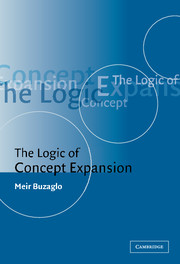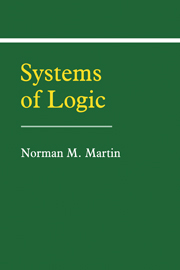The Logic of Concept Expansion
The operation of developing a concept is a common procedure in mathematics and in natural science, but has traditionally seemed much less possible to philosophers and, especially, logicians. Meir Buzaglo's innovative study proposes a way of expanding logic to include the stretching of concepts, while modifying the principles which block this possibility. He offers stimulating discussions of the idea of conceptual expansion as a normative process, and of the relation of conceptual expansion to truth, meaning, reference, ontology and paradox, and analyzes the views of Kant, Wittgenstein, Godel, and others, paying especially close attention to Frege. His book will be of interest to a wide range of readers, from philosophers (of logic, mathematics, language, and science) to logicians, mathematicians, linguists, and cognitive scientists.
- An innovative study that has a contribution to almost every discussion in philosophy of logic, language and mathematics
- Analyzes the views of Kant, Wittgenstein, Godel, and others, paying special attention to Frege
- Will be of interest to a wide range of readers from philosophers to logicians, mathematicians, linguists, and cognitive scientists
Reviews & endorsements
'The book provides interesting philosophical, mainly historical, views on the dynamics of conceptual changes which fall under the considered domain of concept expansion.' Zentralblatt für Mathematik und ihre Grenzgebiete Mathematics Abstracts
Product details
October 2007Paperback
9780521041058
196 pages
229 × 152 × 11 mm
0.3kg
1 b/w illus.
Available
Table of Contents
- Preface
- Acknowledgements
- Introduction
- 1. Historical background
- 2. Frege's opposition
- 3. The grammar of constraints
- 4. Expansions as rational procedures
- 5. Implications for concepts
- 6. From words to objects
- 7. Gödel's argument
- 8. Implications for thoughts
- 9. 'I was led astray by language'
- Epilogue. How do we go on from here?
- References
- Index.




